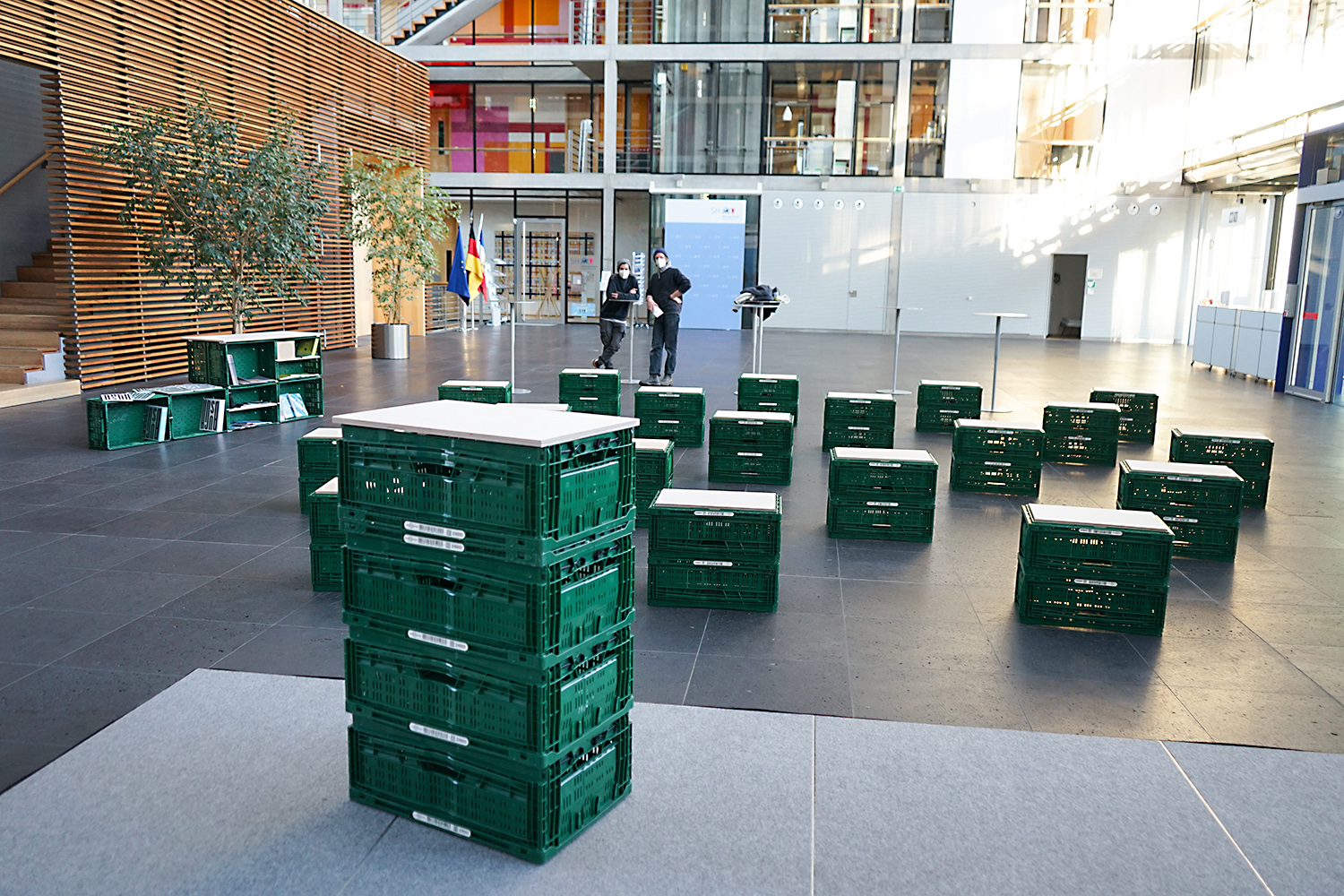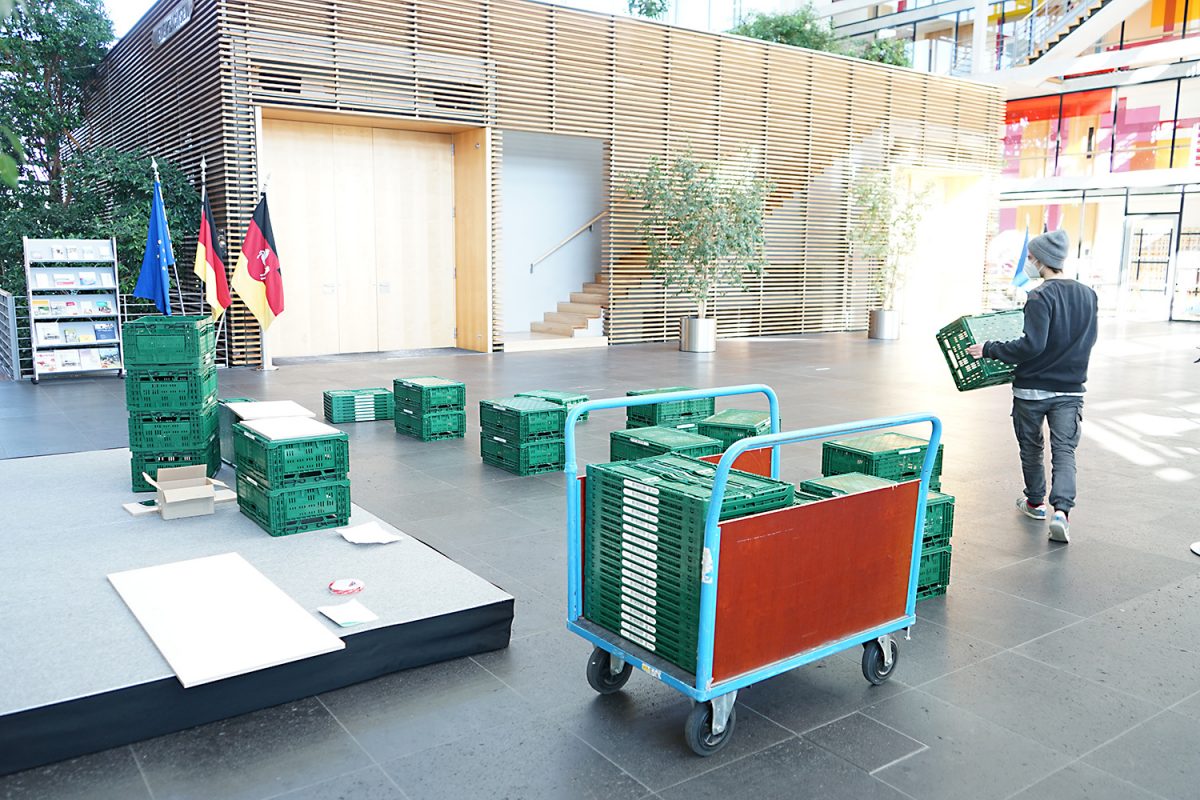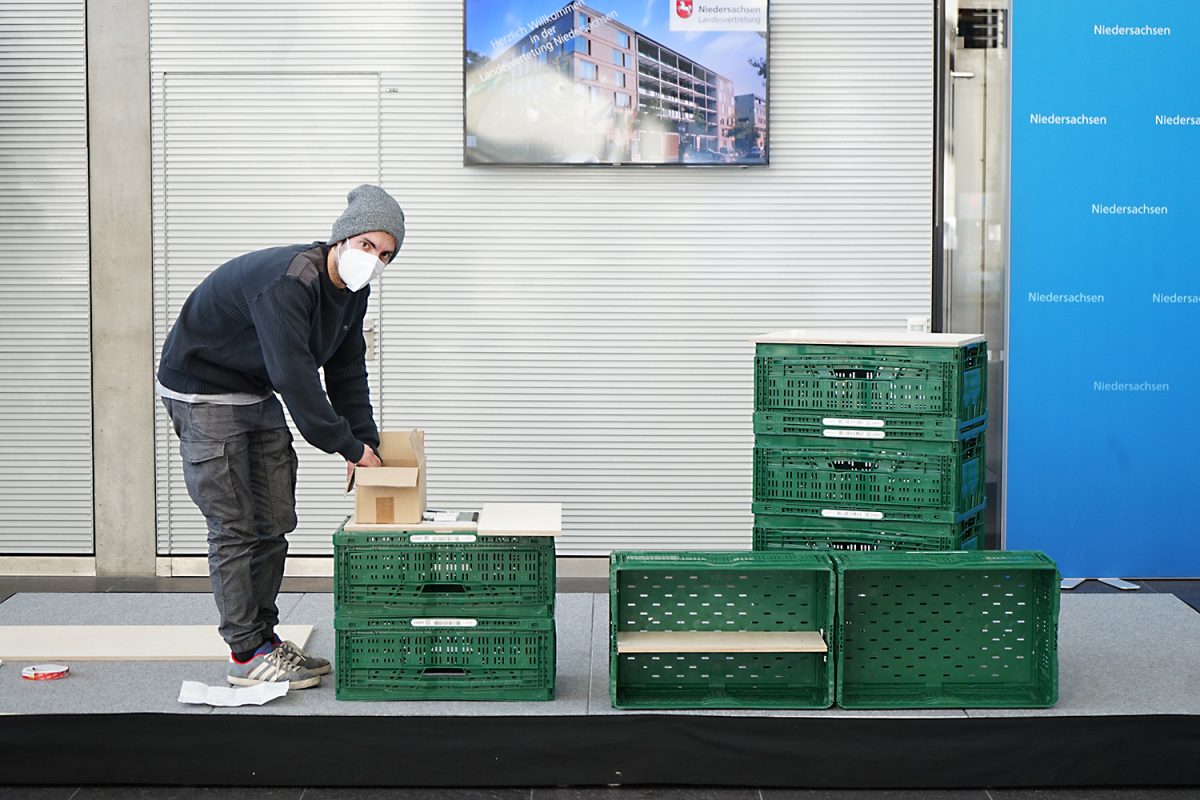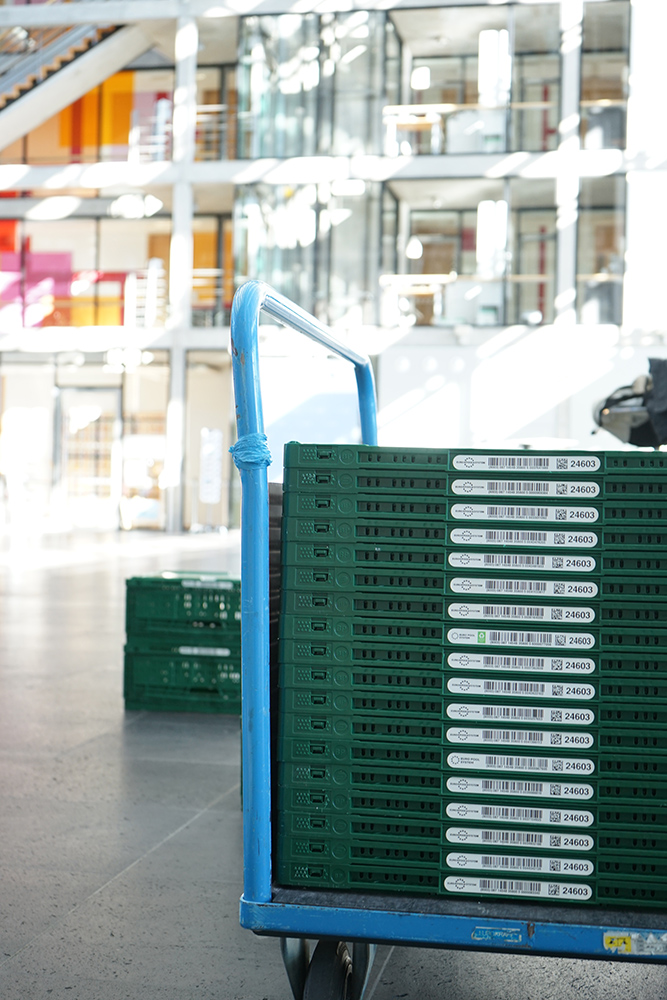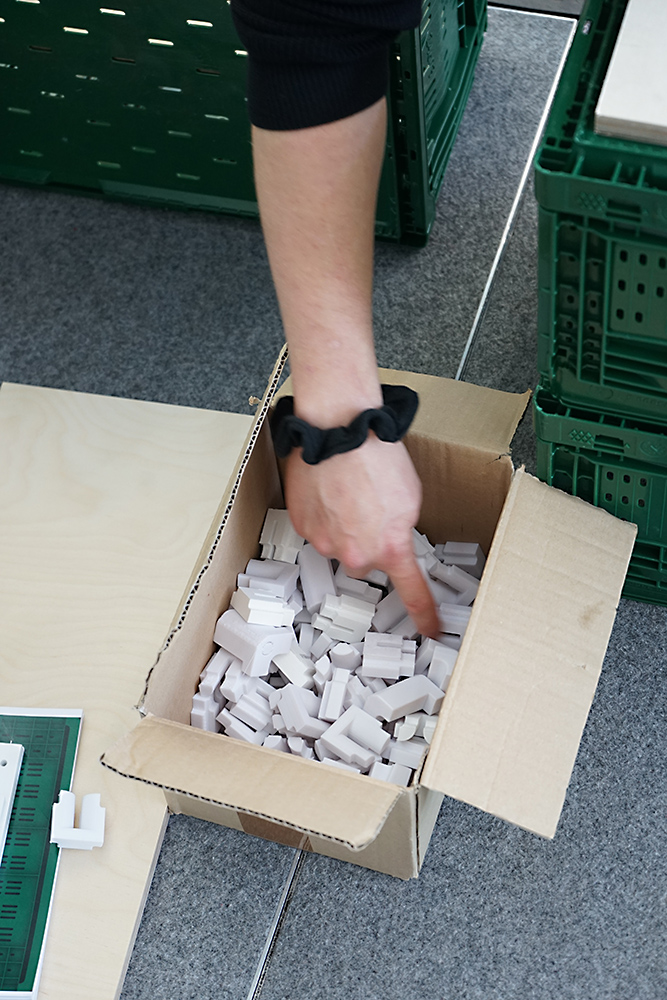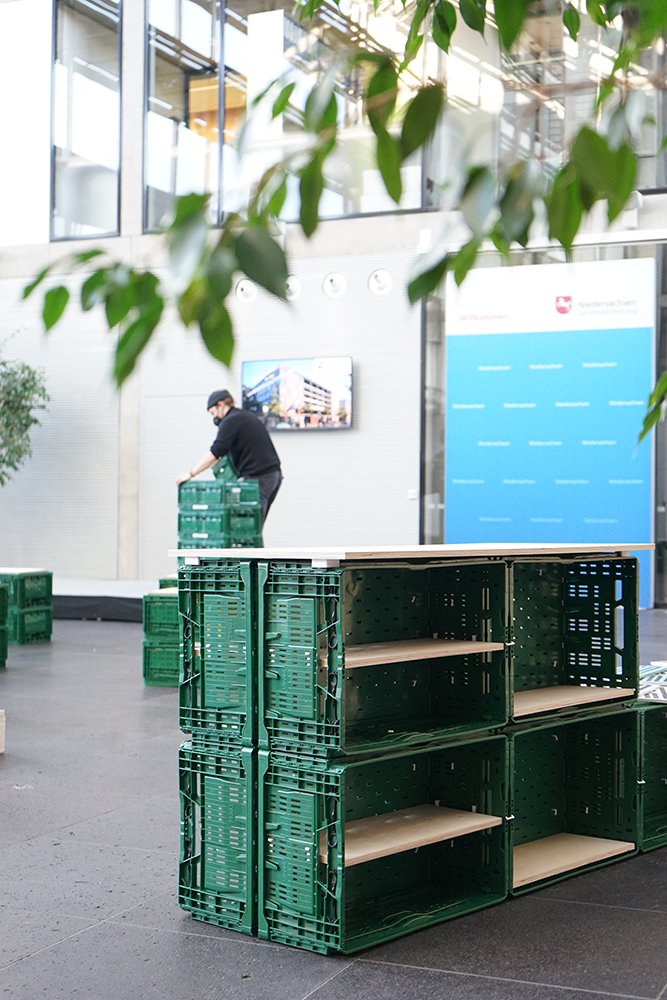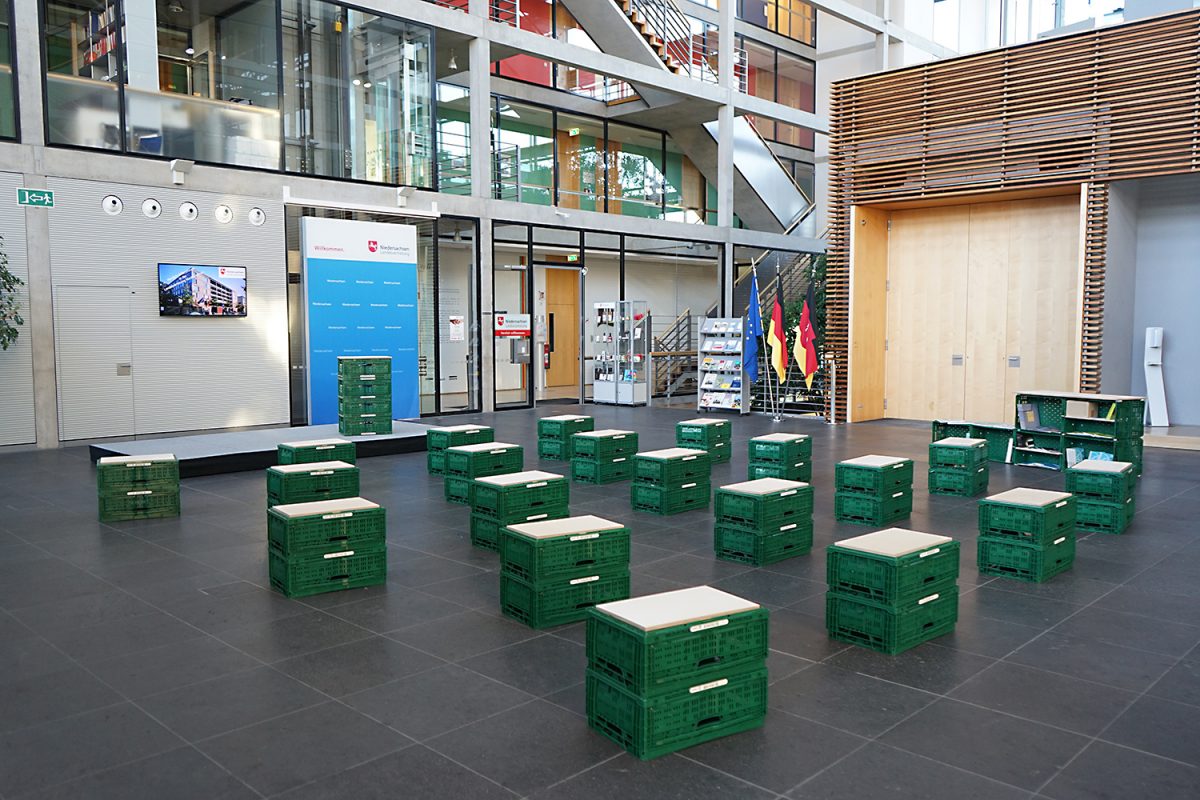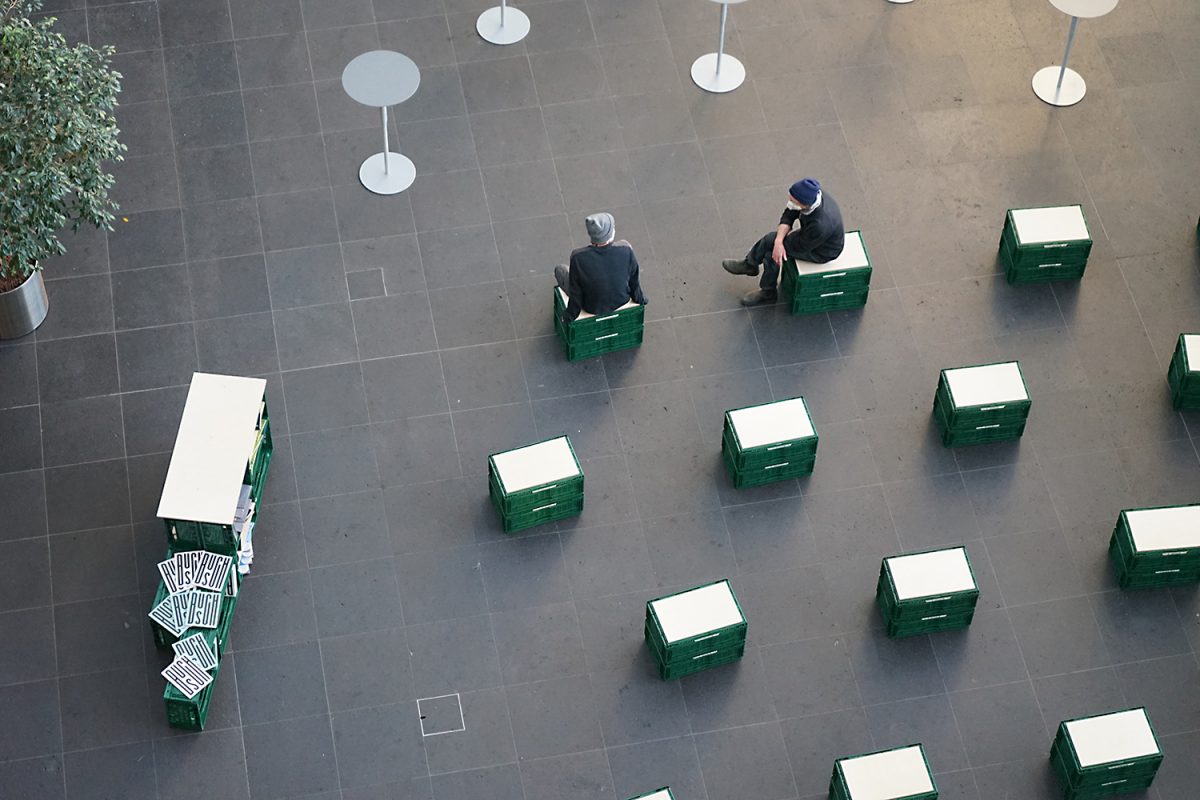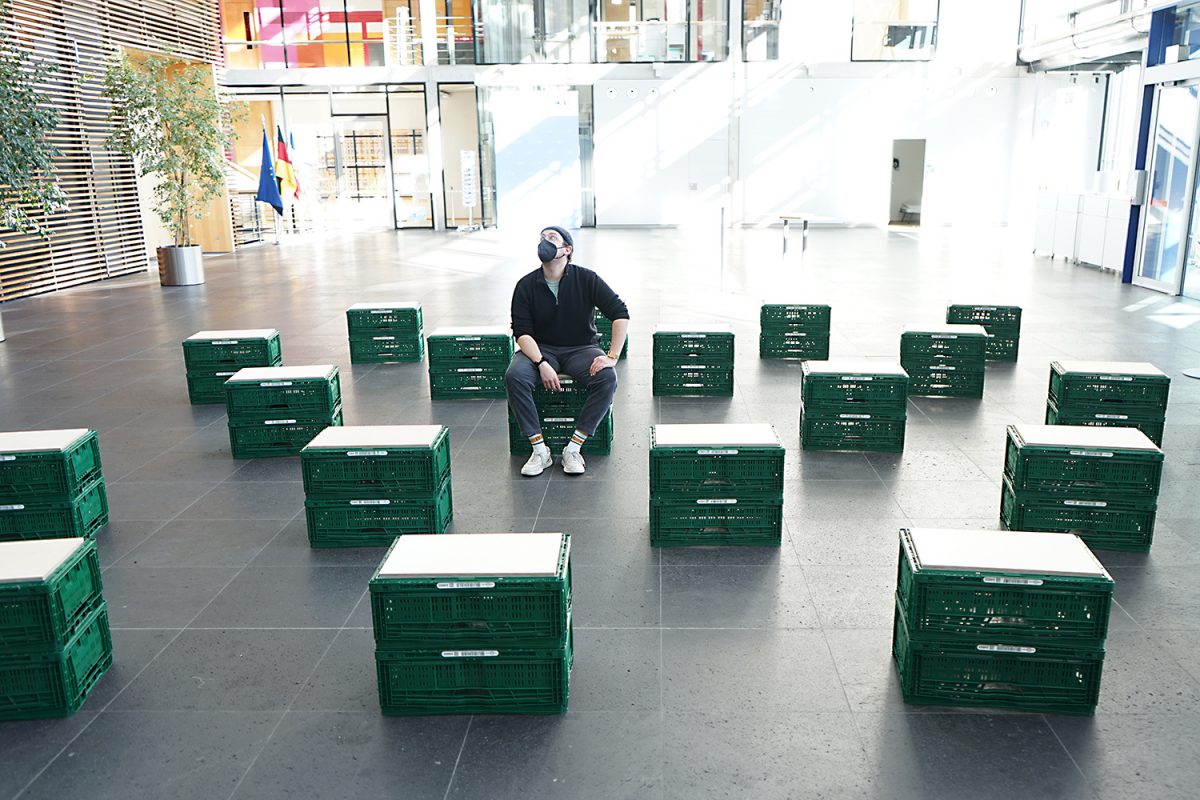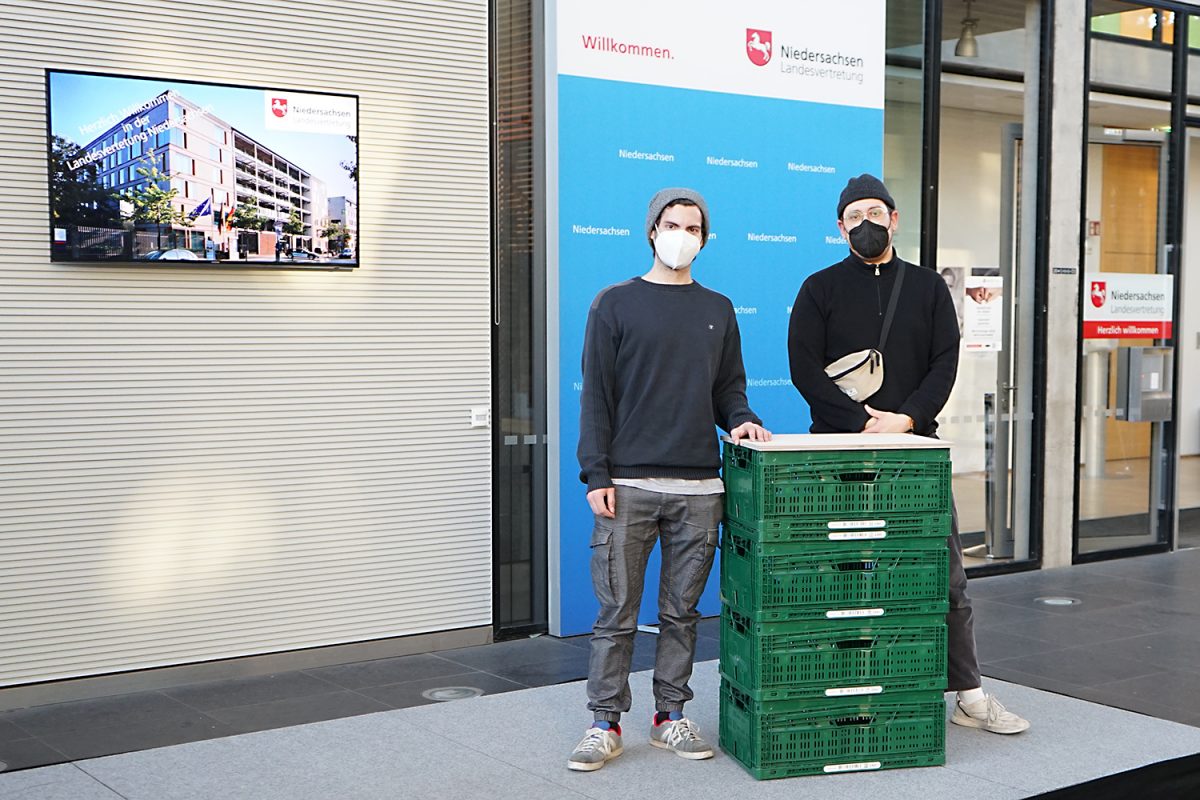From fruit crate to piece of furniture Architecture students design event room in Lower Saxony's state representative office
Are the green folding crates from the supermarket only for fruit and vegetables? Or could they be made into something even more? This is what the two architecture students Linus Starmann and Marcel Galrao asked themselves when they were working on modular furniture and flexible moving at the Institute of Architecture-Related Art (IAK). The result was a furniture system they called “move/able”. The students are now allowed to use it to design an event room in Lower Saxony’s state representative office in Berlin.
But how exactly does “move/able” work? Linus Starmann and Marcel Galrao have designed for the standardised folding crates what they have been lacking until now to become furniture and moving helpers: “We have developed completely reversible connectors and gadgets that unite the crates into one unit without damage and give them new possibilities of use,” explains Linus Starmann. The boxes become building blocks in the process. This makes them versatile, so that each element can fulfil several functions on its own.
Today they are a shelf and tomorrow they will each be a stool or bedside table. And when it comes to moving house, the building blocks become moving boxes and in the next residence the desk is one element smaller or larger. “This means that the boxes can remain in their existing circulation system without any problems. That was and is always a priority for us, but equally also a condition of the manufacturer of the folding crates, who provided us with the crates free of charge.”
Bed, shelf and mobile container
Equally important to the budding architects is that any more or less handy person can assemble everything from the boxes – without tools. “The only thing needed is a little creativity and your own hands,” says Linus Starmann. In total, the students developed and produced nine different elements in their free compact design – supervised by Professor Folke Köbberling, Alexa Kreissl and Benjamin Menzel. From a bed to a mobile pedestal and wardrobe to a wall shelf, the boxes can make all kinds of furniture. In a first test run, they were able to assemble and disassemble the complete furnishing of a room in this way within half an hour. “This also makes move/able much faster to assemble than anything from the big Swedish furniture store, I would argue.”
The architecture students were asked to design a changeable scenery for various events at Lower Saxony’s state representative office in Berlin. “A little surprised at first, we soon had a lot of fun coming up with different new constellations,” reports Linus Starmann. “Especially because the variations of talk show, fashion show or book launch go beyond our everyday furniture.” Starting from the perspective of the users, they did not design any new elements, but created new box compositions with the existing ones. For Linus Starmann, this was an exciting experience: “In between, we felt like we were working with a Fischertechnik kit.
You can experience what the students have come up with for the first date in Lower Saxony’s state representative office on site in Berlin. On 9 March, Professor Folke Köbberling is invited there for a talk.

